Disclaimer: This blog post contains affiliate links. If you make a purchase through these links, I may earn a small commission at no additional cost to you. Learn More. Thank you for supporting our garden community.
Expert Tips for Pest Control in Your Winter Garden
Last Updated: July 8, 2024
As the mercury dips, we often sigh in relief, thinking our pest problems have hibernated for the season. Unfortunately, many gardeners find that winter brings its own unique pest control challenges. From resilient bugs seeking shelter to fungal diseases thriving in the cooler, wetter weather, your winter garden is far from safe. So, how do you safeguard your green oasis during the colder months? In this detailed guide, we’ll uncover essential tips and strategies for effective pest control in your winter garden.
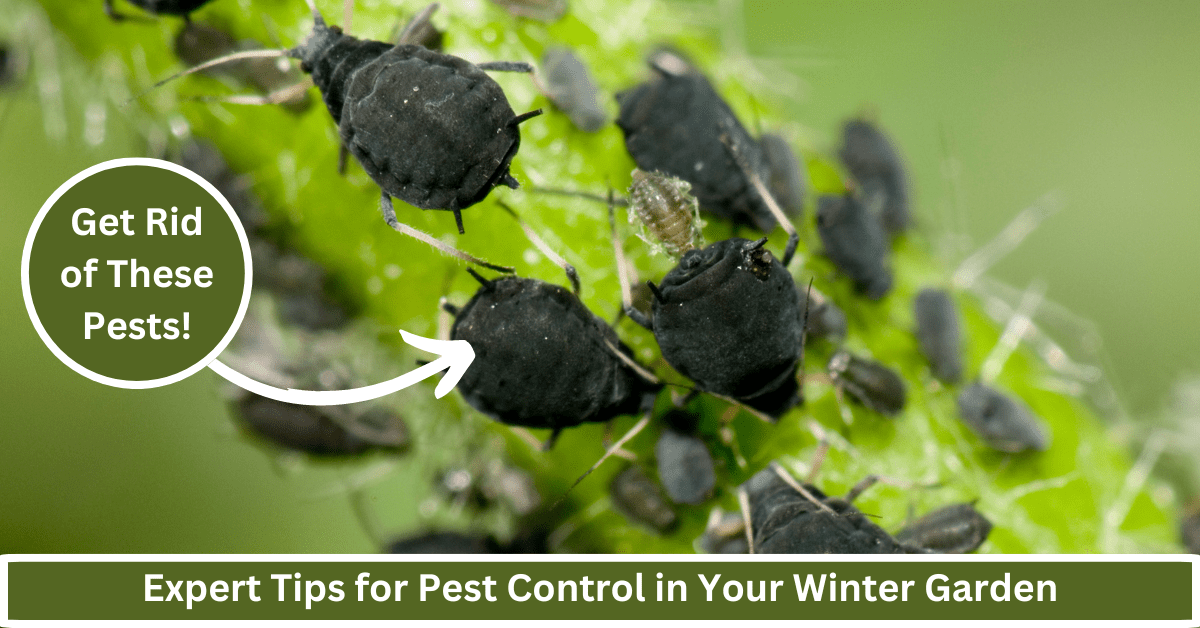
Last winter, my garden became the unlikely stage for an epic showdown. The villains? A seemingly endless group of aphids, intent on conquering my cherished rose bushes.
Each morning, armed with nothing but hope and a bottle of neem oil, I ventured out into the frost-kissed garden, determined to save my flowers.
It was a battle of patience and care, but eventually, the tide turned. The aphids dwindled, and in their place, a host of beneficial insects took up residence, turning my garden into a thriving ecosystem rather than a scene of despair.
Through this trial, I learned a valuable lesson: with a little persistence and the right approach, nature has a beautiful way of restoring balance.
Expert Tips for Pest Control in the Winter Garden
Here’s what you will learn from reading this post:
- Identification and Habits of Winter Pests: You will learn about common winter pests that are likely to infest your garden, their behaviors, and the typical areas they inhabit during the colder months.
- Winter Garden Maintenance Techniques: This post will teach you strategic garden care methods such as pruning, soil care, and proper mulching techniques that help prevent pest infestations during winter.
- Eco-Friendly Pest Control Methods: We will discover natural and environmentally responsible pest control solutions, such as using neem oil, beneficial insects, and physical barriers to manage and eliminate garden pests.
- Adaptive Pest Control Planning: This article provides insights into creating and adapting a personalized pest control strategy, encouraging ongoing monitoring, and suggests keeping a journal to track the effectiveness of various methods in your unique garden environment.
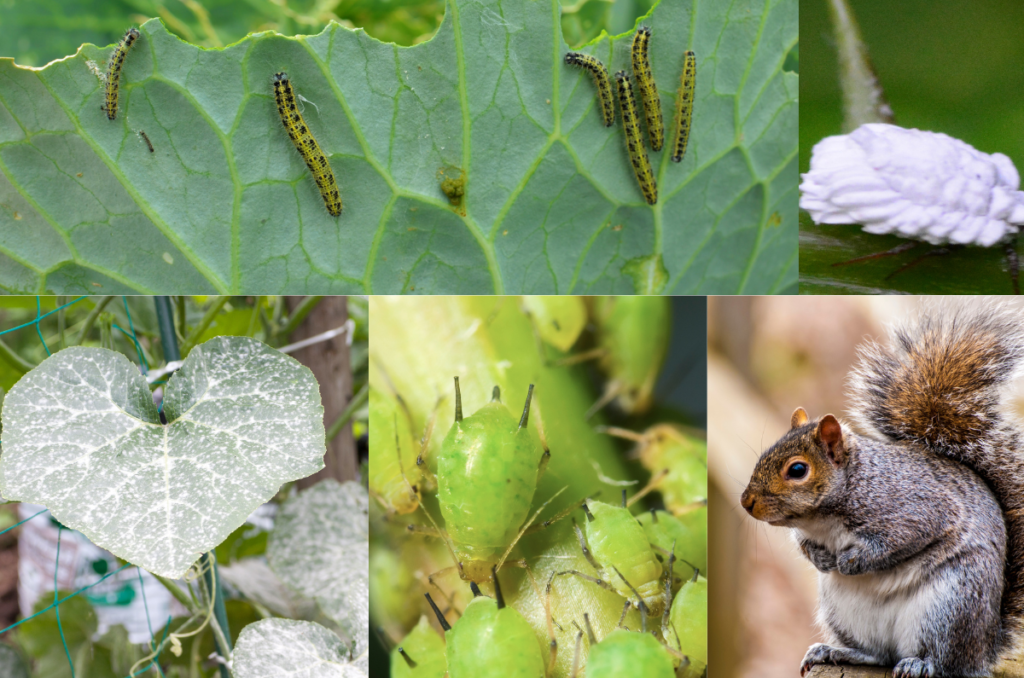
Understanding Winter Pests and Their Hideouts
In winter, pests like rodents, aphids, scale insects, powdery mildew, and cabbage worms seek shelter and food in your garden, becoming uninvited guests. Detailed insights into their behavior and preferred hideouts can help you develop targeted control strategies.
- Rodents find solace in compost heaps and beneath debris. They typically burrow into the soil and make resting and hibernation spots (if you live in colder climates). Squirrels may make additional holes in the winter to search for food.
- Aphids and scale insects tend to cluster on the underside of leaves and along stem joints. They suck the sap out of plants, leaving them lifeless and ready to die.
- Cabbage worms are caterpillars that feed on the brassica plant family. They typically hide on the undersides of large brassica leaves, such as those of kale, cabbage, and broccoli.
- Powdery Mildew is a fungal disease (not quite a pest) that loves the cool and moist conditions of the winter. It forms on the leaves of plants, blocking sunlight and eventually reducing photosynthesis on the plant.
- Utilizing covers for plants and implementing repellents can drastically reduce the pest presence in your winter garden.
Strategic Garden Maintenance for Pest Prevention
Winter garden care is paramount for minimizing pest infestations. Most pests won’t “go away” on their own. With that in mind, we need to grow a happy and healthy garden that naturally takes care of pest populations.

Eco-Friendly Pest Control Solutions
Going green with your pest control not only benefits the environment but can be more effective and safer for your plants.
- Neem Oil: A versatile, natural pesticide to combat soft-bodied insects. Neem oil can be diluted 1 tbsp to 1 litre of water. Add to a spray bottle and spray the affected areas of your plants.
- Insecticidal Soap: An organic natural castile soap. Similarly to neem oil, castile soap can be diluted 1 tbsp to 1 litre of water and sprayed on the affected areas of your garden.
- Beneficial Insects: Introduce or encourage beneficial insects like ladybugs and lacewings that prey on harmful pests. This can be done by incorporating flowers and other ornamental plants, companion planting, and by creating insect hideouts.
- Barriers and Traps: Employ physical barriers or traps to prevent pests from accessing your plants. A common trap is the beer trap, in which you place a small cup of beer in the soil, just with the top exposed. This will attract many winter garden pests and they will drown in the cup.
Personalizing Your Pest Control Plan
Every garden is unique, so it’s crucial to tailor your pest control strategies to your specific situation.
- Evaluate your garden’s specific challenges and pest pressures.
- Consider planting pest-resistant plants next season.
Monitoring and Adapting Your Strategies
Pest control is an ongoing battle that requires vigilance and adaptation. Regularly inspect your garden for signs of infestation and adjust your methods accordingly. Keep a journal of what works and what doesn’t for future reference.
I can give you as much information and advice as I want, but ultimately, you have to try it in your garden. I know that sometimes it can seem like a challenge. But you need to overcome the challenge and take care of business!
Discussion Questions
We want to hear from you! Which pest control method has been your winter garden’s game-changer? Do you have any unique strategies or suggestions not mentioned here? Drop a comment below and let’s cultivate a thriving gardening community together.
Frequently Asked Questions
Yes, many pests can still affect your garden in the winter. While some pests die off or become dormant, others, like rodents, certain insects, and larvae, remain active and can damage your winter plants or seek shelter in your home and greenhouse.
It’s a good practice to check your garden at least once a week during the winter months. Regular inspections help you catch any potential pest problems early on.
While you can use pesticides, it’s best to consider them as a last resort and opt for eco-friendly and natural pest control methods first. I don’t believe that there is ever a time to use pesticides in the home garden. Stay organic!
Frost can kill some garden pests, but many have adapted to survive cold temperatures or seek shelter to avoid frost altogether. Therefore, don’t rely solely on cold weather to eliminate garden pests.
Protect your winter plants from rodents by eliminating food sources and shelters, using barriers like wire mesh around plants or raised beds, and considering traps as a control method if the population is significant.
Yes, companion planting can be an effective strategy for pest control in winter gardens. Certain plants can repel pests or attract beneficial insects, helping to maintain a healthy balance in your garden. Examples include planting garlic near roses to deter aphids or marigolds to discourage nematodes.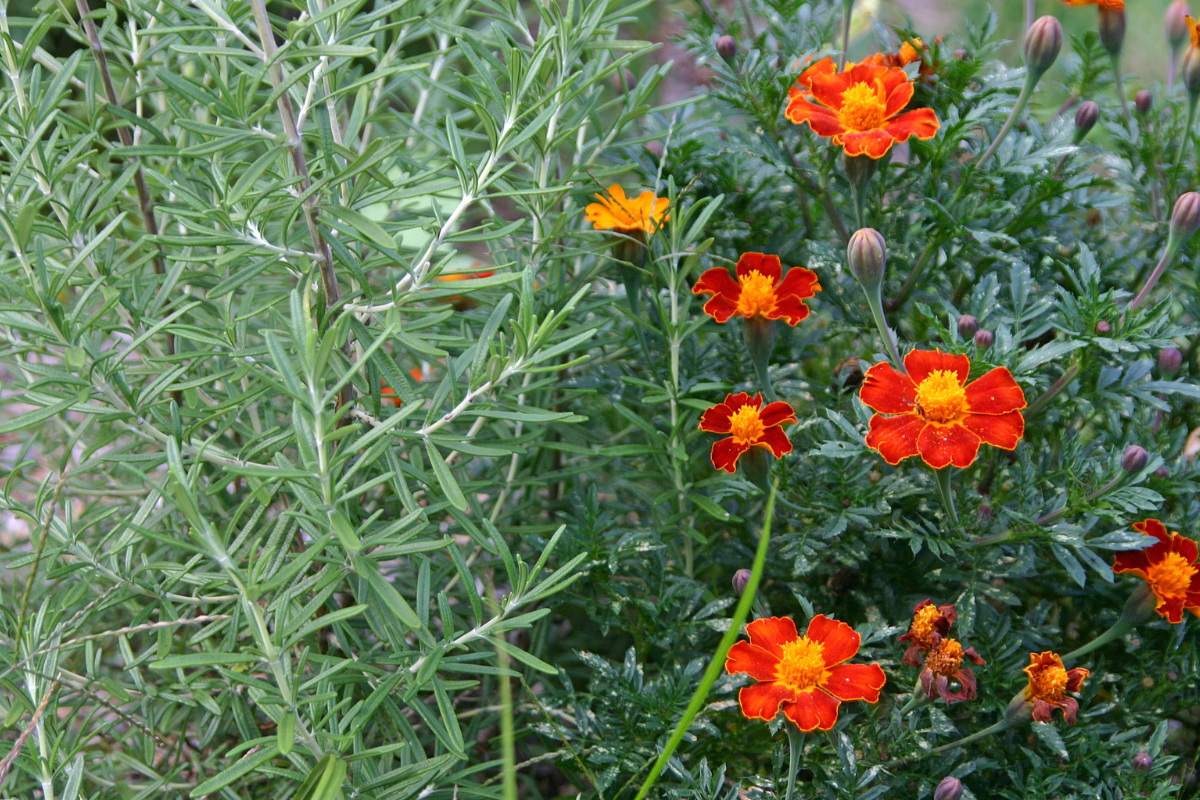
Even More Gardening Ideas
Here are a few more posts to get the ball rolling in your garden!
- How to Get Rid of Aphids on Plants
- The 10 Most Fragrant Flowers for Your Garden
- Nasturtium: The Garden Must-Have
Products
For all-purpose organic fertilizers, check out Arber.
To buy organic, non-GMO garden seeds, check out SeedsNow.
For a wide selection of perennial garden plants, check out Nature Hills Nursery.
For gardening equipment, check out Bootstrap Farmer
Conclusion
As we brace for winter, remember that proactive measures and understanding pest habits are key to protecting your garden. Embrace eco-friendly solutions, maintain your garden carefully, and personalize your pest control plan.
Challenges may arise, but they bring valuable lessons in mastering pest control during the colder months. Stay vigilant, keep learning, and your winter garden will thrive, providing a strong defense against pests. Happy gardening, and may your winter garden remain a vibrant, pest-free haven.
Have you faced any stubborn pest challenges in your winter garden? Share your experiences or tips in the comments below! If you found these insights helpful, consider sharing this post on social media or signing up for our newsletter for more gardening guides and tips.
If you want to learn more about gardening, foraging, nature, and sustainability, check out The Real Gardener on Instagram, YouTube, and Pinterest.
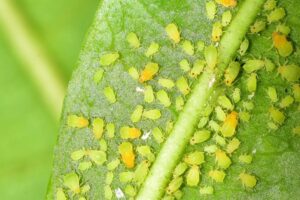
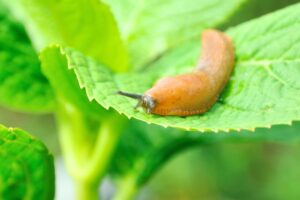
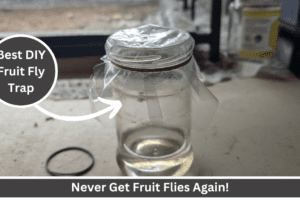
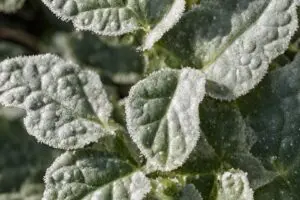
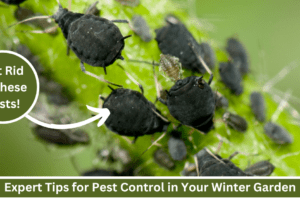
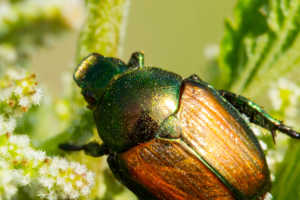
Winter might seem like a break from pests, but many still thrive in colder months. Pest control measures should be taken year-round to avoid surprises. What winter pests have you dealt with?
It’s not as bad in the winter as in the summer, but I still get aphids, cabbage worms, and squirrels. And then inside there’s always fungus gnats; it’s probably my most hated pest!